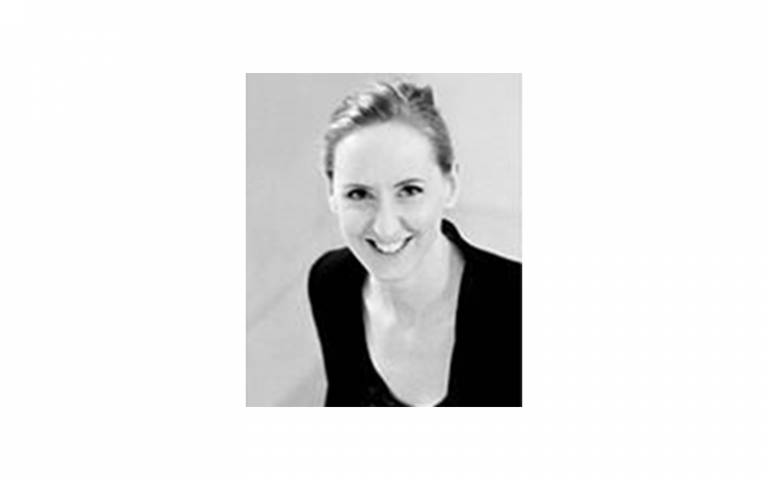Spotlight on Kate Quinn
25 October 2019
Dr Kate Quinn is an Associate Professor in Caribbean History.

What is the focus of your research?
I am a historian of the Caribbean. Though I am currently focused on the political history of the post-independence Anglophone Caribbean, I have also worked on other areas of the region, including Cuba post-1959. My research - on subjects including the role of intellectuals in constructions of national culture, the Black Power movement and the rise and fall of the Caribbean left, and the Westminster model and questions of governance and political reform - demand a comparative, regional and transnational approach.
What appealed to you about working for the Institute of the Americas?
So many things! Its unrivalled hemispheric approach and the opportunity to really grow the Caribbean programme were major factors. Great colleagues and students who all share a passion for the region. And a research and teaching culture that encourages thinking across disciplinary and regional borders. I love that I can come down from my office on any given night of the week and attend an event on anything from the elections in Argentina to indigenous movements in Canada, the Stonewall riots, or the French Caribbean under the Vichy regime. Being here allows you to constantly refresh your thinking on your own subject and to step outside of disciplinary and other silos in ways that can spark off new and unexpected ideas and connections.
Tell us about a project you are working on now
In terms of publications, I am currently working with my colleague Tony McCulloch on an edited volume on 1968 in the Americas, which arose from a conference we held here in 2018. It's a good example of the kind of collaborations and cross-regional exchange prompted by being here at the Institute. I'm also putting the finishing touches to a substantive chapter on heads of state and constitutional crises in the post-independence Caribbean. This piece has arisen out of my work on the Westminster model in the Caribbean. It examines a number of episodes in which the actions of the constitutional head of state - nominally a symbolic role - have had significant political consequences, in particular through the use or misuse of prerogative powers. Given that in 9 out of the 12 independent Commonwealth Caribbean states the constitutional head of state is the British monarch - represented in the person of the Governor General - an analysis of their role raises questions about the persistence of colonial structures and institutions in the post-colonial state.
What do you find most interesting/enjoyable about your work?
I really enjoy teaching. Many of our students have not had the opportunity to study the Caribbean in any depth before they come here, so it's great to engage in debates with them on classic Caribbean texts such as C.L.R. James' The Black Jacobins or Eric Williams' Capitalism and Slavery for the first time. It's also very rewarding seeing students go on to develop their dissertation projects and carry out impressive pieces of independent research. I also really enjoy convening our Caribbean seminar series. It's important that we communicate the research in our field to a wide audience, and this is one of the critical roles that the seminar series plays. We have built up a loyal audience for the series over the years, and they always keep the speakers on their toes.
What working achievement or initiative are you most proud of?
One would be establishing the MA in Caribbean and Latin American Studies at UCL. In an ideal world, I would like to be able to offer an MA in Caribbean Studies, which is something I have been thinking about and working on since I got my first academic job back in 2005. At present, there are not enough Caribbean-specific modules offered at Masters level within the University of London to build up a full Caribbean degree programme, and inter-collegial initiatives always bump up against bureaucracy and other obstacles, but with the recent appointment of a number of Caribbeanists at London universities, including at UCL, I'm hopeful we might get there one day.
What are your top tips for the new students who joined us in September?
Take advantage of all the opportunities being at the Institute and being in London can offer you. The pace of work can been pretty intense and it's easy to get bogged down in short-term assessment deadlines, but it's important to try to step back mentally every so often and take a break from the strictly academic part of doing a degree. And if in doubt about anything, ask. The academics and admin team are all supportive, and if we don't know the answers we will point you to someone who does.
Can you tell us about your plans for the future?
As with most academics, I have a number of things on the go and the challenge is not to feel panicked about when and how to get them all done. I have research leave coming up in January and will use that to carve out some writing time on my Black Power in the Caribbean project. I am also in the process of submitting a funding bid for a large AHRC grant. And on my return from research leave I'll start working on developing a new second-year course on 'The Caribbean in the shadow of the United States' for our new BA History and Politics of the Americas degree.
 Close
Close

